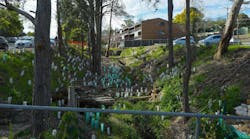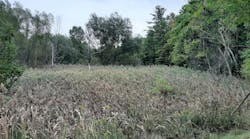IECA News: Director Message—Education Supporting Certification
Erosion and sediment control and stormwater-related certifications are goals, and sometimes requirements, for most industry professionals and employers. Credibility, as well as qualification, becomes a driving factor in how peers and professionals alike are viewed in this industry-not only by those working the industry but also by many government agencies, municipalities, DOTs, and of course a judicial system hungry for placing blame for projects loaded with violations or infractions that one way or another find their way into the litigation process.
Whether litigation is brought forth through enforcement actions, or a concerned general public, the underlying burden remains the same. Were the violations or infractions created by a lack of knowledge on the part of the owner, designer, reviewer, contractor, or inspector? Was there a tool, mechanism, or qualified individual(s) that could have prevented adverse conditions to the environment in the first place? These are only some of the many appropriate questions posed by the prosecution, while qualification and integrity can sometimes be proved on the defense side. Very rarely is there a total winning case on the defense side, since there were obvious problems creating the litigation. However, qualified individuals having done their due diligence on the defense side can often prevent a case against them from becoming a complete disaster. Credentials play a huge part in this.
Existing nationwide are nearly endless state and municipal “certificate/certification programs.” The intent of these programs is to create enough knowledge for designers, reviewers, contractors, and inspectors to meet the minimum qualifying requirements to perform work for their respective states and/or municipalities. Knowledge requirements can be anywhere from basic to comprehensive. While a certificate program can be useful in providing basic knowledge, a true certification is largely recognized on a national scale, often accepted as an exemption from a certificate program training and examination. Why? There are several components of certifications, including meeting specific criteria for experience and examination before being certified, continuing education requirements for certification renewal, and some form of accountability as it relates to standards and practices within the industry, including a code of ethics. An exam, coupled with experience, makes the certification verifiable. Is a true certification easy to obtain? Far from it. It takes education with experience to get it done, but is well worth the time invested.
IECA has partnership agreements with CISEC Inc. and Envirocert International, based on a very strict set of criteria, some of which has been outlined in this article. Between these two certification bodies there is a certification for designers, reviewers, inspectors, and those in charge of municipal operations. IECA cannot provide field experience, but it does provide excellent educational opportunities to help get to the certification process. The IECA Professional Development Committee works tirelessly to provide educational components needed to reach that goal of certification. IECA is also in the process of pursuing the IACET (International Association for Continuing Education and Training) approved provider status so certification registrants can have nationally recognized Continuing Education Units (CEUs) to help keep and maintain their certification status.
There is no substitute for knowledge, integrity, and the pride of holding a nationally recognized certification, which might also be helpful in the event of an unexpected trip into a court of law.


